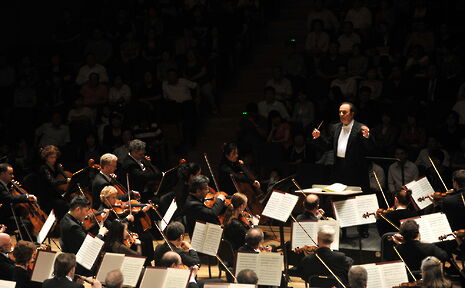What happened to classical music?
Suffocated by rigidity, the purpose of music is being lost

Nearly a hundred years ago, Stravinsky’s The Rite of Spring (1913) was debuted at the Théâtre des Champs Élysées. The events that happened that night are infamous. There was outrage at the score – and, indeed, the performance - from the crowd that led to a riot that shaped the history of The Rite. Similarly, in 1838 Berlioz’s Benvenuto Cellini performance led to hissing, booing and shouting after only a few numbers into the first performance. In times like these it was completely accepted for the audience to display their thoughts on the music aloud – even encouraged. So, why is it not accepted now?
Classical music, in most of its permutations, has become a turgid, contrived music form that is inherently elitist. It has done this by inculcating an unyielding ethos around classical music concerts: the black tie; the no-shouting-or-clapping apart from when allowed to; and the repetitive and mainly unchanging repertoire (which are modern amendments).
I say unchanging, not in the terms of the pieces, but of the players and the attitudes surrounding the scores. For example, in The Lives of the Great Composers Harold C. Schonberg notes, “If recent research into eighteenth-century performance practice has demonstrated one thing, it is that our four-fathers used much more freedom when interpreting the music than most twentieth-century musicians are prepared to admit.” This has worsened as we have moved in to the twenty-first century.
“The striving to get it as close to the original as possible is admirable. However, it misses the very point of the music.”
The rigidity that orchestras play with in today’s performances, and the striving to get it as close to the original as possible is admirable. However, it misses the very point of the music and, in turn, makes people switch off to the music at live performances. Why would I want to go and see an orchestra that I know what they are going to play and how they are going to play it? Interpretation is key to the success of music and makes it come alive, yet today’s performances and conductors do not allow it. Leonard Bernstein argued that it is to “try to capture the moment and feel of the time that the piece was originally written.” Nevertheless, today we live in a society now that has the performances at their fingertips and being stubborn to the score in its exactness is to do the composer a great disservice.
To remedy this, we have to allow the music not only to change us, but for us to change it. To be able to do this with no fear of doing so, to be able to add to the classics. We should allow performances not to follow the rigid structure of the average night of recitals, but to surprise and delight us as the composers intended. It needs to move away from rigidity as it alienates the instrumentalists playing the music, to have no artistic license as it has been written just so and you cannot better it. To continue like this is to destroy the meaning of the music
 News / Uni Scout and Guide Club affirms trans inclusion 12 December 2025
News / Uni Scout and Guide Club affirms trans inclusion 12 December 2025 News / Pembroke to convert listed office building into accom9 December 2025
News / Pembroke to convert listed office building into accom9 December 2025 Features / Searching for community in queer Cambridge10 December 2025
Features / Searching for community in queer Cambridge10 December 2025 News / Uni redundancy consultation ‘falls short of legal duties’, unions say6 December 2025
News / Uni redundancy consultation ‘falls short of legal duties’, unions say6 December 2025 News / Gov declares £31m bus investment for Cambridge8 December 2025
News / Gov declares £31m bus investment for Cambridge8 December 2025








